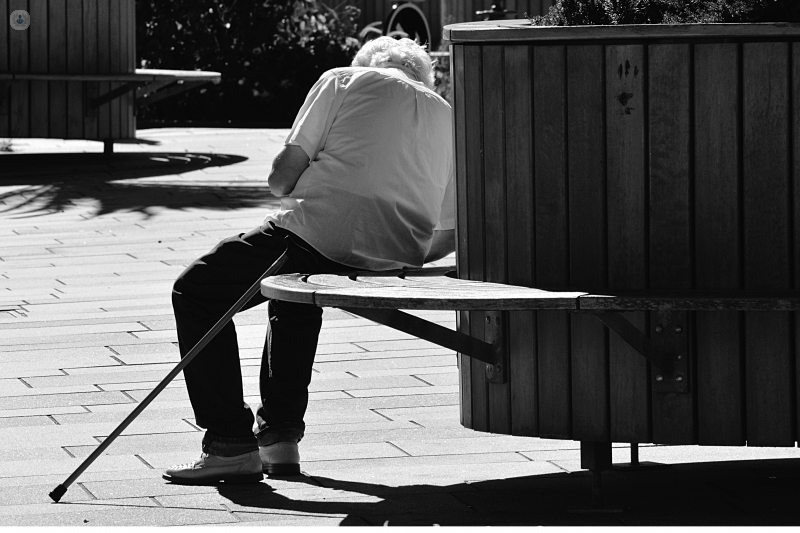What’s the best way to treat osteoarthritis in the hip?
Written by:Each year over 70,000 people in the UK get a hip replacement – that equates to 200 a day. The main common reason to have this surgery is to relieve pain in the hip due to osteoarthritis. But what exactly is osteoarthritis, why does it cause hip pain, and are there alternatives to having surgery? We asked Mr Peter Craig, a leading consultant orthopaedic surgeon based in Droitwich, UK.

What is osteoarthritis?
Osteoarthritis is a common complex condition in which the smooth cartilage lining a synovial joint becomes thinned, damaged and ultimately wears away. This can lead to patients developing pain, stiffness and loss of function.
How does osteoarthritis affect the hip joint?
In the hip, the slippery cartilage on the surface of the femoral head (ball) and lining the acetabulum (socket) is damaged. Patients who are developing osteoarthritis may have no or minimal symptoms in the early stages. As damage to the joint progresses it may lead to symptoms.
About 1 in 9 adults in the UK over the age of 45 has symptomatic hip osteoarthritis. For most of us this occurs slowly as part of a degenerative process as we age. However, it can also occur in younger patients usually secondary to other conditions affecting the hip following injury or if there are subtle abnormalities in the shape of the ball or socket.
What kind of symptoms does osteoarthritis cause?
The most common symptom patients get is pain. This is often described as deep-seated knawing pain similar to chronic tooth-ache. The pain is classically in the groin but can also be felt in the thigh, buttock, or even the knee. Patients often describe the ability to walk the pain off initially but if the osteoarthritis progresses the pain may become more constant. This may lead to reduced walking ability and limping. The pain can start to be present at rest and disturb sleep.
Patients may also complain of stiffness. This can mean a loss of smooth movement or a loss of range motion in the joint.
The pain and stiffness can lead to difficulties with day-to-day activities such as getting out of a chair, getting in and out of a car, going up and down stairs and putting shoes and socks on.
How is it treated?
In the earlier stages of the disease symptoms can be managed without surgery. This is usually with simple pain-killers or anti-inflammatory drugs. Exercises and physiotherapy may help by strengthening muscles and trying to maintain movement in the joint. Using a walking stick in the opposite hand will help.
In which cases would a hip replacement be necessary?
If symptoms become severe or are not controlled by these measures then patients may choose to have surgery. This involves having a total hip replacement.
It’s an individual choice as to when to have a hip replacement, your surgeon can help you with this decision. Reasons include suffering pain at rest, difficulty sleeping, loss of the ability to work and being unable to undertake normal day-to-day activities.
If you require expert hip osteoarthritis surgery, arrange a consultation with Mr Craig via his Top Doctors profile.



